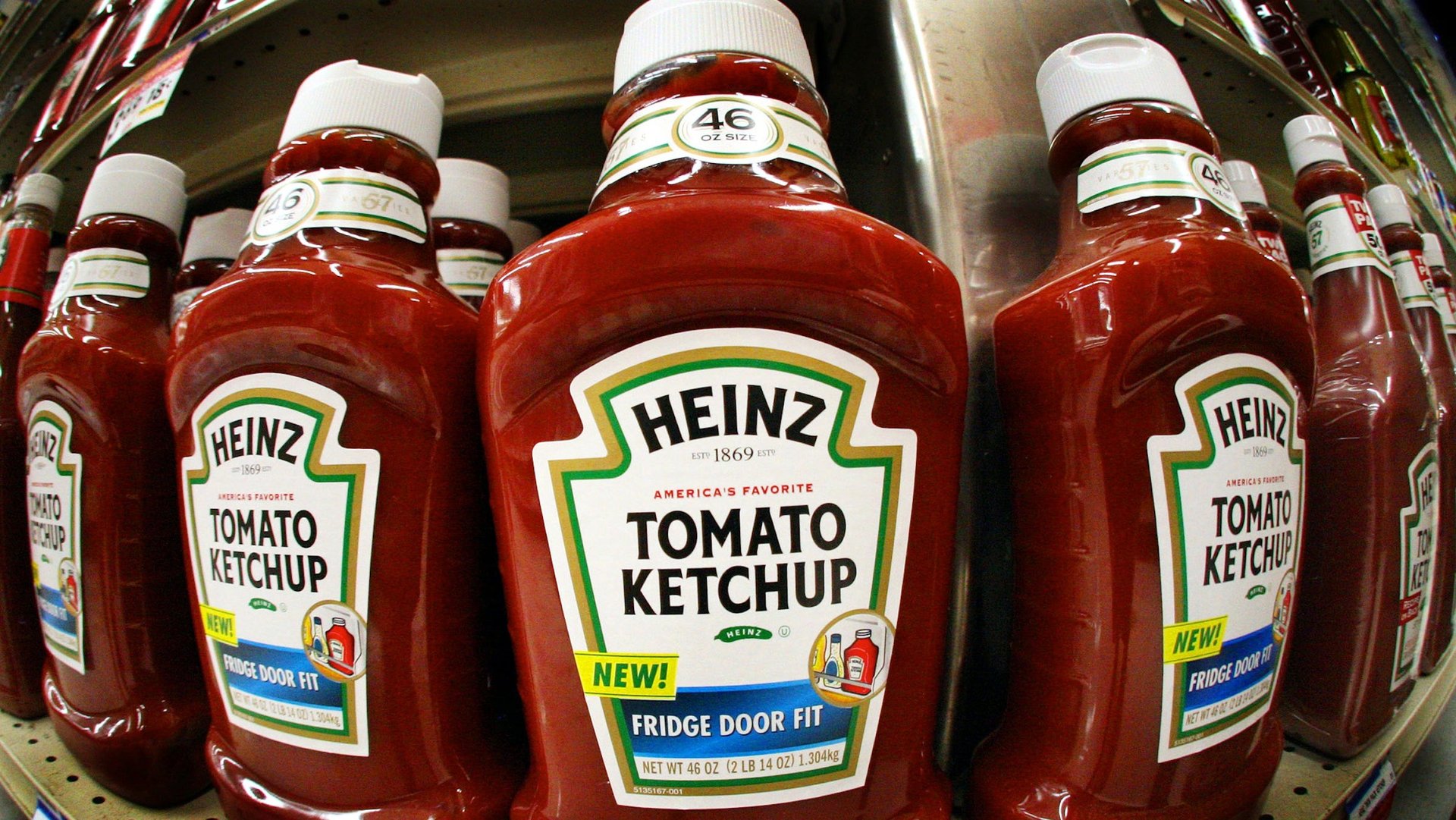The billionaire Brazilians who think everything tastes better with Heinz
“They are not about beer, and they are not about hamburgers. They are about money. They know how to cut costs. They know how to very aggressively push something.” So said Tom Pirko, who advises food and beverage companies, to Bloomberg, describing Jorge Paulo Lemann and his team at 3G Capital, the Brazilian firm poised to take control of Heinz along with Berkshire Hathaway.


“They are not about beer, and they are not about hamburgers. They are about money. They know how to cut costs. They know how to very aggressively push something.” So said Tom Pirko, who advises food and beverage companies, to Bloomberg, describing Jorge Paulo Lemann and his team at 3G Capital, the Brazilian firm poised to take control of Heinz along with Berkshire Hathaway.
Lemann is vying for the position of Brazil’s richest man with Eike Batista, the oil and mining tycoon, and his bet is that Heinz, like 3G Capital’s other holdings, is a brand with important global appeal. Heinz’ sales outside the US more than doubled last year to $979 million. Ketchup and other sauces (such as chili and soy) are the company’s ”past and future,” according to its latest annual report (pdf, p. 2), and emerging markets account for 25% of their sales. In China, where the soy sauce market generates $4 billion in sales each year, Heinz is expanding its Master soy sauce brand beyond its stronghold in the country’s southeast; in Indonesia, its ABC soy and chili sauces are the country’s top sellers.
Nor is ketchup, the quintessential American sauce, only a big seller in America. A big chunk of Heinz’ international growth came from Brazil, where, in 2011, Heinz acquired Quero, a local producer of ketchup and sauces. Quero’s sales increased 76.6% last year.
3G Capital and its founders are known for going after companies and brands with emerging market potential. For example, Bernardo Hees, a 3G Capital partner who became the CEO of Burger King after 3G acquired the restaurant chain in 2010, wants to multiply the restaurant’s presence in Brazil by a factor of ten, and has already launched hundreds of new branches. “One of the key things that attracted them to the brand is the growth [this company] had in Latin America,” John Chidsey, the chain’s previous CEO, told the Wall Street Journal, in 2010.
Soon after its purchase of Burger King, 3G decided to drop the company’s eponymous mascot (a king sandwiched inside a burger), ostensibly to focus on the product, but also possibly because the mascot wasn’t catching on abroad.
3G Capital also seeks synergy between its holdings, which is why it could make sense for the owner of a burger company to go after a ketchup-maker that also produces a wide array of other sauces. In 2011, Burger King signed Pepsi (whose drinks in Latin America are produced by AmBev, the world’s largest beer maker and another 3G holding) as the exclusive provider of soft-drinks for its restaurants in Latin America.